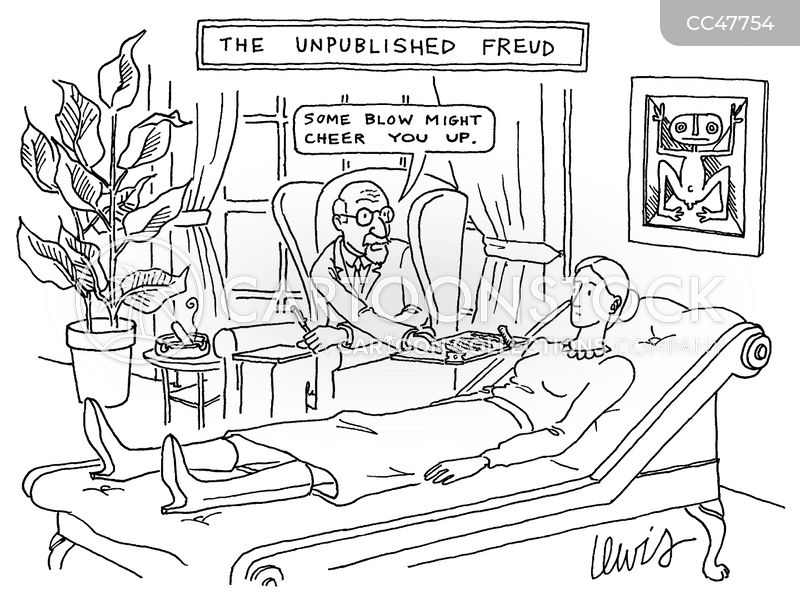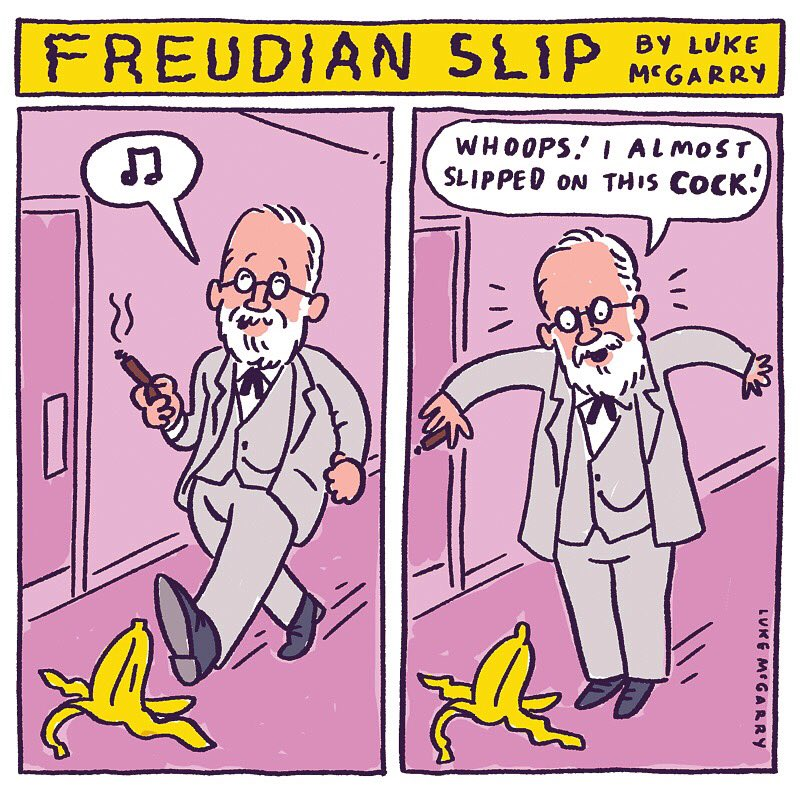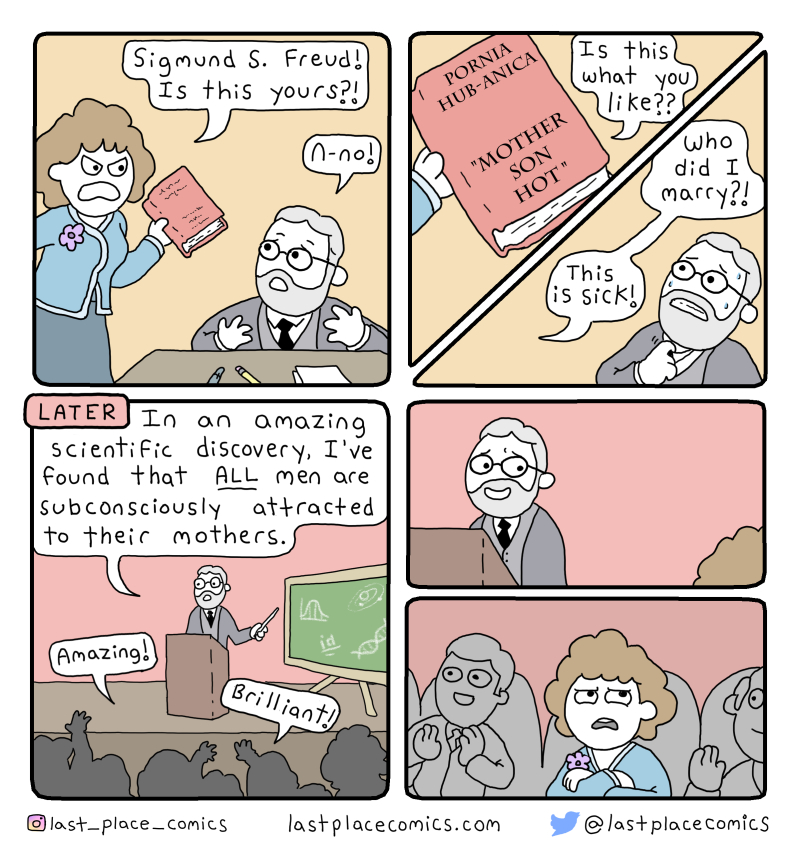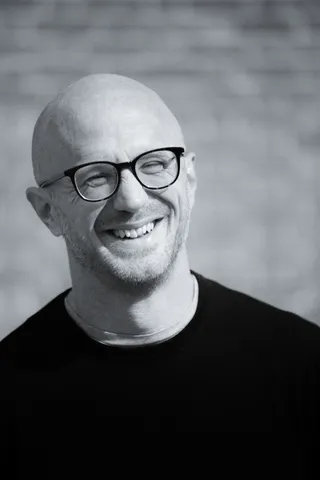The Secret at the Heart of Psychoanalysis

Better Questions is supported by readers like you. If you get value from my writing, consider becoming a supporting member. Exclusive content, weekly deep-dives, free beta-access to future courses and more.
It's 1$.
Thanks.
I've been reading a lot about psychoanalysis.
I couldn't tell you why I started, exactly; how I happened to fall down the rabbit hole.
But every night, for months now, I've been face-down in Freud, Lacan, Bruce Fink, etc.
Psychoanalysis provides a very particular view of the world, one that's very, very different from the mental models I'm most used to (theory of constraints, Cynefin, complex systems, and so on).
While I'm certainly no analyst, nor well-read enough to truly have an educated opinion, I'd like to share my two takeaways from psychoanalysis as a discipline, which are:
1.) Psychoanalysis is nothing like I thought it would be, and that previous narrative can be considered a defense against self-knowledge; and,
2.) The secret at the heart of psychoanalysis is that nothing matters so much as the decision to begin.
What do you know about Sigmund Freud?
If you were anything like me, you may have been able to pull out a few things: the id, ego, and superego, perhaps (though, what did those do again?).
Or that Freud's ideas have largely been disproven. Or, that Freud's view of the world was fundamentally skewed because he only ever studied sick people.
And that's with the support of your classic liberal arts college education. What do most people know about Freud?
A few things:
1.) Freud was addicted to drugs:

(Source)
2.) Freud thought everything symbolized a penis;

(Source)
3.) Freud thought everyone wanted to have sex with their mothers.

(Source)
These jokes are funny primarily because this is what we all know about Freud; this is what Freud's work has been reduced to. This is the shorthand for psychoanalysis in general: you have to lie on a couch, everything's going to be about sex, and it's all a bunch of bullshit.
And to be clear, I'm not saying it's not bullshit. It may well be.
The problem (besides most of these generalizations being untrue...
Many of Freud's findings continue to be backed up by modern research...
He most certainly did not confine himself to the study of sick people - his best-selling book was specifically about everyday life...
And he explicitly states that symbolism is not universal, that not everything represents a dick, and that the interpretation of dreams must utilize the patient's free associations, not those of the analyst..)
...Is that this flattening, this digestion and neutering of Freud's ideas...is exactly what Freud would have predicted.
Freud's biggest contribution to our culture was exploring the idea of the unconscious - the idea that certain feelings and thoughts were perceived to be so threatening, so unpleasant, so viscerally dangerous that we developed defenses against them.
Freud calls this repression: we segregate the offending psychic phenomena into the recesses of our minds, disconnecting them from any related thoughts or memories. Once a feeling is separated this way from the rest of our psychic lives, it becomes inaccessible - it's moved off the board, and it's a program from a different operating system that can't be opened on our mental computer. It's still there, but we can't access it, and we simply forget it exists.
But repressed things don't stay hidden forever. They won't go away or fade with time - they remain as they were, frozen in time. And because they're still there, humming with all the threatening energy they possessed when they were first banished from our waking minds, they return - trying to find gaps in our psychic defenses through which they can escape.
Dreams are the classic example: Freud hypothesized that many dreams contain things we secretly wish for, even if the dream seems scary or unpleasant. That's because our defenses are lowered during sleep, and the repressed can sneak out.
Similarly, slips of the tongue (now universally called "Freudian slips"), lapses of memory, or inexplicable behaviors that seem to run counter to what "we want" can often be traced back to the return of the repressed. One part of ourselves struggles to contain the forbidden thought or wish; another part struggles to make that wish known. All kinds of cognitive dissonance ensue.
Remember: these thoughts and feelings were so distressing that we exiled them from our conscious minds rather than dealing with them. Do you think we're just going to....let them out? Do you think our psychic defenses are just going to let our unconscious speak to us in our dreams? You can't get to the unconscious by simply asking what's down there...oh no.
What you get when you do this - when you see an obvious interpretation of your dream or an explanation of a Freudian slip that seems to make all the sense in the world, or when you "meditate" to "contact your shadow self..."
What you get from these is not the unconscious, not the repressed...
...but the defense.
We twist, we alter, we lie, we fabricate; we use what we expect to obscure what is.
Imagine you've got a secret diary, filled with your darkest secrets. You could hide that diary, say in a hollow beneath a floorboard...but, of course, someone who was determined could find it. If you thought to hide it there, someone else could think to look there.
No - the best way to hide such a diary is to hide it beneath another, fake diary. Put things in that fake diary that are embarrassing, something you might plausibly want hidden, but not anywhere near as damaging as what's in the real one. Hide that fake journal well. That way, when someone comes looking and finds the fake diary....they will stop looking.
The best defense against the revealing of the repressed is thus not simply keeping it hidden away...but offering up something in its place to convince people to stop looking.
THAT's the defense.
See, when we flatten Freud to "this banana is really a cock," that's not the revelation of some dark secret about the human mind...because, if it was, why do you feel so comfortable saying it? We love to say that everything's about sex in psychoanalysis, but when was the last time you saw anyone feel uncomfortable about sexual thoughts? Why bother repressing it when it's already everywhere?
All the stuff you were taught about Freud - the sex, wanting to have sex with your mom and kill your dad, the couch, the drugs, everything - that's all the defense.
That's the fake diary, planted to stop you from looking for the real one.
That's the knowledge that prevents change.
And that brings us to takeaway number 2.
There is a LOT written about how to do psychoanalysis.
How do you diagnose someone? What's the difference between a hysteric, a neurotic, a psychotic, or an obsessive? Once you've pinned them down, how do you treat them - do you encourage transference, or resist it? Do you interpret, or let the patient do it? If they ask you for direction or solutions, do you provide them? Or does that simply foster the dependency that's at the root of their issues?
All of these are, of course, extremely important to the professionals who practice psychoanalysis.
For the rest of us, though, there's only one lesson to take from it all, which is:
Change starts the minute you fully accept the existence of your unconscious, and commit to the process of its analysis.
People LOVE to talk about "getting in touch with" their feelings, with their shadow, with really understanding themselves.
But the truth is, we don't repress unpleasant things. We repress things that repulse us. Things that are often so painful, or so contrary to our perception of ourselves, that to admit them into conscious awareness feel life-threatening.
Committing to the process of exploring your unconscious - not through books, or through some kind of self-help nonsense that you could easily twist to serve as your defense - but willingly walking into a room with a person whose only job is to unearth what you have kept hidden for so long...
That is a massive act of courage.
And once you start, the very act of starting changes you. You are now a person that accepts the unconscious. You are now a person committed to its exploration.
You are now the analysand. It is not the therapist that creates this change - you do.
And that is the dark secret at the heart of psychoanalysis.
Now -
Why in the world would we have needed to repress that?
Yours,
Dan
Better Questions Newsletter
Join the newsletter to receive the latest updates in your inbox.
